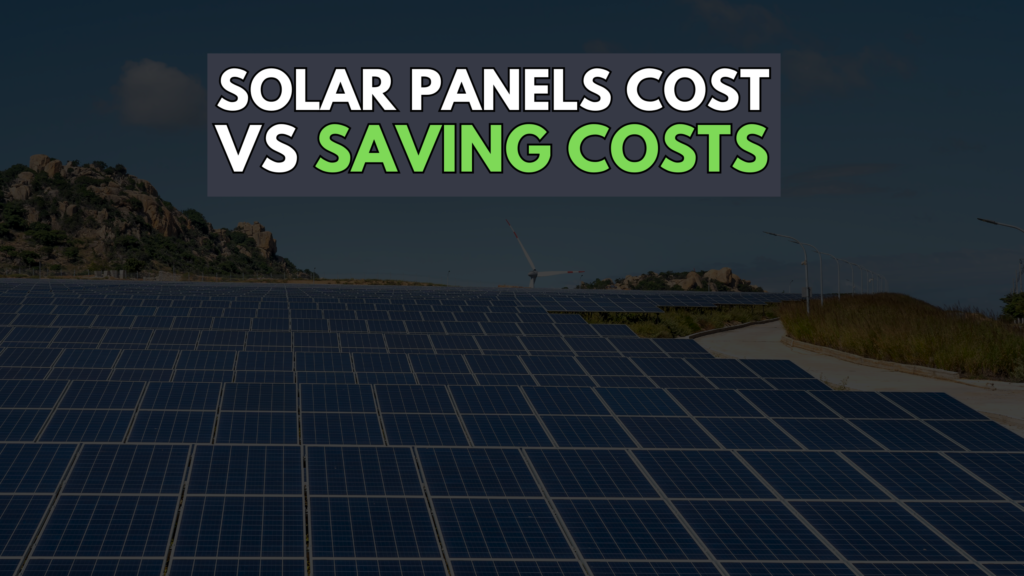Solar Panel Cost and Savings Calculator
Estimate your solar panel costs and potential savings with our easy-to-use calculator
How Does It Work?
Our solar panel calculator helps you estimate the cost of installing solar panels and the amount you can save on your energy bills. Simply enter your energy consumption details, and let the calculator estimate the cost and savings over time.
Solar Savings Calculator
Calculating Solar Panel Cost & Savings: A Guide to Cost-Effective Solar Power

Going solar is a fantastic way to reduce your carbon footprint and save money on your energy bills. However, the initial investment can seem daunting. This guide will help you understand the key factors that influence the cost of solar panel installation and explore strategies for maximizing your savings.
Factors Influencing Solar Panel Costs:
System Size: The size of your solar panel system is directly proportional to its cost. Larger systems with more panels and higher wattage will naturally be more expensive.
Panel Type: Different types of solar panels (monocrystalline, polycrystalline, thin-film) have varying efficiencies and price points. Monocrystalline panels generally offer the highest efficiency and longest lifespan but also come with a higher price tag.
Inverter Costs: Inverters are crucial components that convert the DC power generated by solar panels into AC power usable for your home. The cost of inverters varies depending on their type (string inverters vs. microinverters), efficiency, and features.
Battery Storage (Optional): If you opt for battery storage to use solar power during outages or at night, it significantly increases the upfront cost. You can use Solar Battery Advisor to calculate the cost etc.
Installation Costs: Labor costs can vary significantly depending on the complexity of the installation, roof accessibility, and local labour rates.
Permits and Inspections: Obtaining necessary permits and inspections can add to the overall cost.
Incentives and Rebates: Government incentives like the federal Investment Tax Credit (ITC) and state-level rebates can significantly reduce the upfront cost of solar installation.
Estimating Solar Panel Costs:
- Use Online Solar Calculators: Several online tools can provide cost estimates based on your location, energy consumption, and desired system size.
- Get Quotes from Multiple Installers: Obtain quotes from at least three reputable solar installers in your area. Compare prices, installation methods, warranties, and customer reviews.
- Consider Financing Options: Explore financing options like solar loans or leases, which can make solar more affordable by spreading the cost over time.
Maximizing Cost Savings
- Take Advantage of Incentives: Research and apply for all available government incentives and rebates.
- Reduce Energy Consumption: Implement energy-saving measures in your home, such as upgrading to energy-efficient appliances, improving insulation, and sealing air leaks. This will reduce your reliance on electricity and minimize the size of the required solar system.
- Choose the Right Installer: Select a reputable and experienced installer with a proven track record and positive customer reviews.
- Monitor Your System’s Performance: Regularly monitor your solar system’s performance and ensure it is operating efficiently.
- Consider Energy Storage: While battery storage increases upfront costs, it can significantly enhance your energy independence and provide backup power during outages.
Calculating Your Return on Investment (ROI)
Estimate your annual energy savings: Calculate the amount of money you will save your electricity bills each year by installing solar panels.
Factor in the cost of the system: Consider the total cost of the system, including installation of solar system, permits, and any applicable incentives.
Calculate the payback period: Determine how long it will take for your energy savings to offset the initial cost of the system.
Assess long-term benefits: Consider the long-term benefits of solar power, such as increased property value, reduced environmental impact, and energy independence.
Conclusion
While the upfront cost of installing solar panels can be significant, the long-term benefits, including reduced energy bills, environmental sustainability, and increased property value, make it a worthwhile investment for many homeowners. By carefully considering the factors that influence cost, exploring available incentives, and choosing the right installer, you can maximize your savings and enjoy the benefits of clean, renewable energy.
Disclaimer: This information is for general guidance only and should not be considered financial or investment advice. Consult with a qualified solar installer and financial advisor for personalized guidance.
